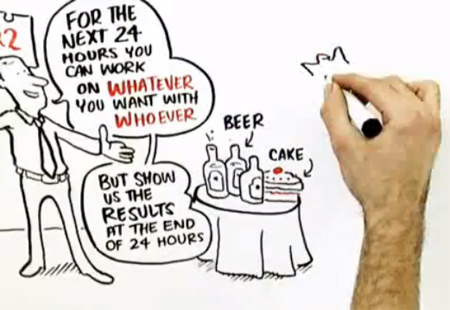
A few days ago, Amazon announced their new Kindle 8 format, the format the Kindle Fire will use to show newer Amazon books. I’ve heard some questions arise about this–whether Kindle authors will have to re-convert books, whether the older Kindle devices will support the new format and what will happen if they don’t, etc. Fortunately, digging into Amazon’s information the new format answers these questions clearly. Here are the implications for Kindle authors and some answers for readers who use the Kindle.
You won’t have to convert your existing Kindle books
The Kindle Fire and other devices and apps that support the Kindle 8 format will continue to support older Kindle formats. If you have existing books available for Kindle, the only disadvantage they’ll have if you don’t do a Kindle 8 version is not taking advantage of the new Kindle 8 features, which most non-graphic-intensive books won’t have a use for. If you have complex layouts, lots of graphics, etc., you probably will want to come out with a new, improved version.
Apps and new Kindle devices will support Kindle 8; old Kindle devices won’t
The newest generation of Kindles–the Kindle Fire, the touchscreen Kindles, and the latest keyboard Kindle–will soon support the new format. So will Kindle reader apps for iPhone, Windows, the Web, etc. Older Kindles won’t.
Older Kindles downloading newer books will just get a Kindle 7 version
Amazon is rolling out new software for formatting and previewing Kindle books, KindleGen 2 and Kindle Previewer 2. This software will automatically generate both an older Kindle 7 version of the book and a newer Kindle 8 version. If you’re reading on a device or app that supports the Kindle 8 format, you’ll get that, including any enhanced content that may be included. If you’re reading on an older Kindle–that is, any Kindle device bought previous to the launch of the Kindle Fire generation–you’ll get the older format. Kindle Previewer 2 allows viewing how the book will look on various devices, so you’ll have ample opportunity to test and tweak the appearance of your book. The only real drawback to using an older Kindle device is that there will be some content in graphics-intensive eBooks that won’t translate well to the older, more limited format.
Newer Kindle devices and apps will support the old format
Just to be clear, nothing has to change about existing Kindle books for the newer devices to read them: Kindle 7 is just another format they support.
The new format will no longer be straight Mobi
Prior to Kindle 8, the only difference between Amazon’s Kindle format and the industry standard Mobi format was Amazon’s DRM, “digital rights management” encoding that helped prevent unauthorized copying of Amazon books. For books that don’t have DRM, the current Kindle 7 format is identical to Mobi, and in fact you can take a non-DRM-protected Kindle book off a Kindle, change the extension (the last part of the file name) from .azw to .mobi, and read it on any Mobi-compatible device. With Kindle 8, it appears this will end. Amazon appears to have decided that with the direction eBooks are going, Mobi alone is too restrictive. They do seem to be using other industry standard specifications, though, including HTML 5 (the newest, most dynamic, and most design-friendly format for Web pages, which is now supported by current browsers) and CSS (a way to specify text formatting and page layout that is also supported by current browsers).
Kindle 8 format books can have a lot more design to them
In Kindle 8 format, Kindle books can have colors, fonts, and complex layouts. Frankly, I’m not very enthusiastic about this for most books. For books where text and images need to be intermingled in a particular way or that require tables or vector graphics, it will be great. For the vast majority of books, it will be completely unnecessary, and unfortunately some of these books will be designed in a way that will make them harder to read. Oh well. Just please don’t be one of the people who takes a book that is just text and tries to pretty it up with special fonts and color. From my point of view, when I read, I want to be barely aware of the text so that I can focus on what’s being said. I’m willing to bet most readers have the same basic response to overfancified text.
Kindle 8 won’t support audio and video
Amazon’s information isn’t clear about this, but at least according to this gentleman, audio and video will not be included in this version of the Kindle format. This surprises me, actually. It seems almost a no-brainer that the Kindle Fire should be able to read books with embedded audio and video–for instance, language courses that will pronounce words when you tap on them, or a book about the history of film with pertinent clips–not that any of that would work on my 3rd generation Kindle anyway. Oh well. Maybe in Kindle 9.
Like this:
Like Loading...




